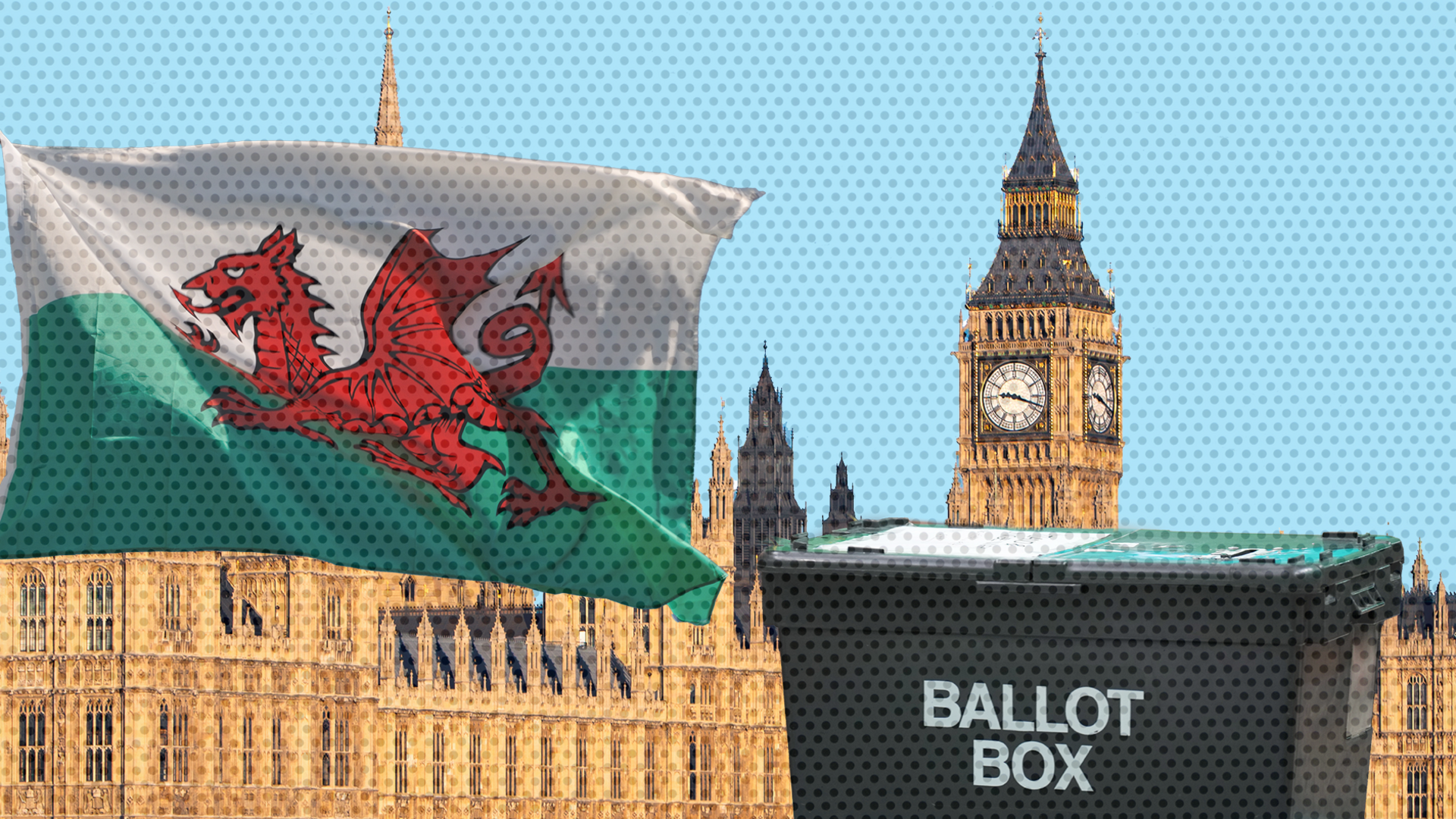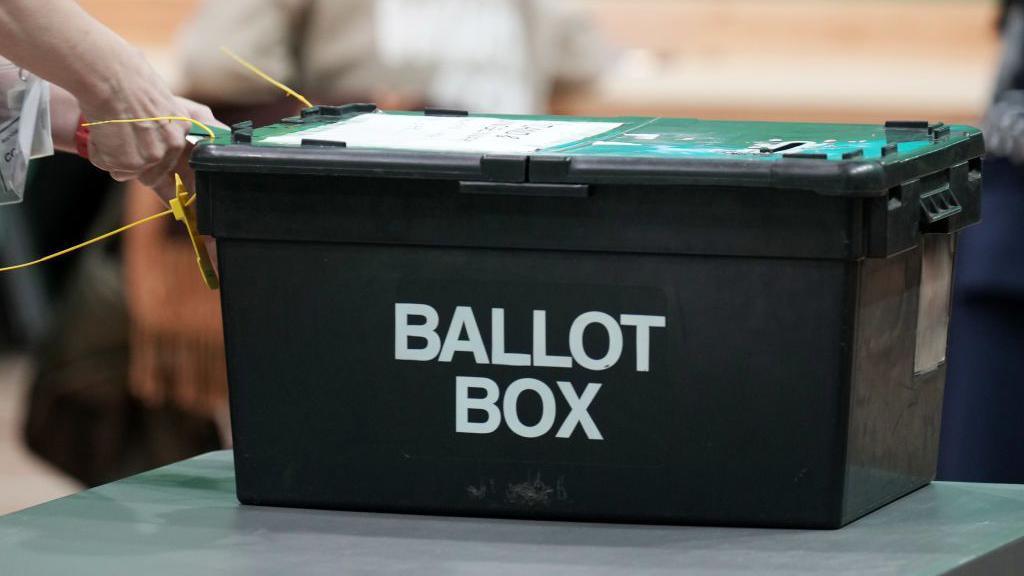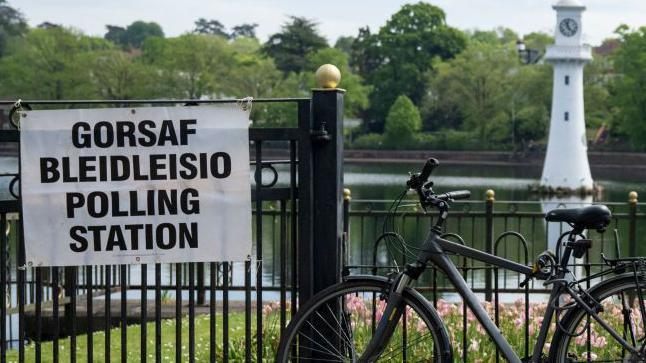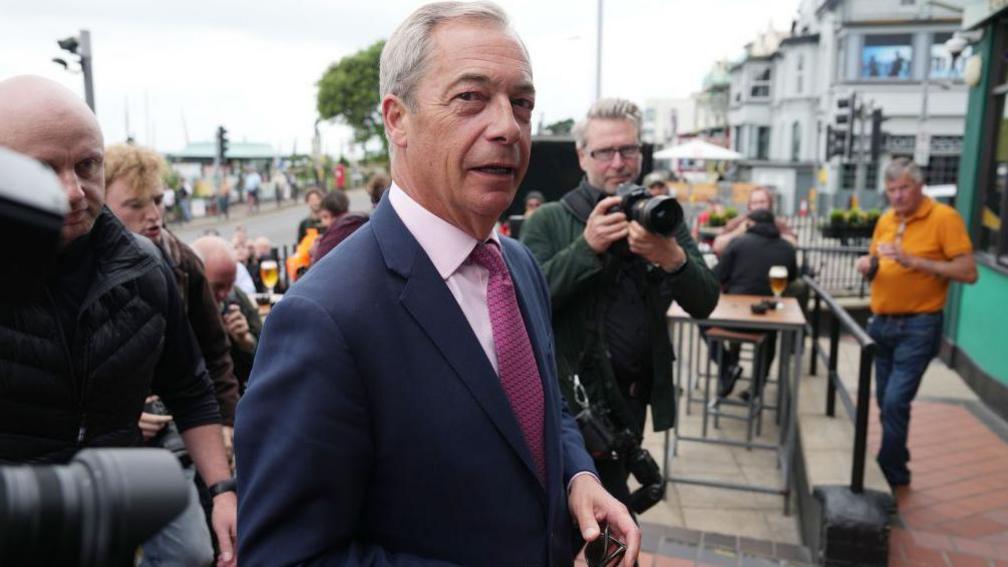What does the UK government do in Wales?

- Published
By now, you've probably heard there's a UK general election on 4 July.
Members of Parliament - or MPs - will be elected to the House of Commons, and the leader of the party with the most MPs will become the new prime minister.
Wales - like Scotland and Northern Ireland - also has a devolved government - meaning some powers have been passed from the House of Commons to the Welsh Parliament, or Senedd, in Cardiff Bay.
A simple guide to the 4 July general election
- Published4 July 2024
Election poll tracker: How do the parties compare?
- Published3 July 2024
What is devolution?
For many years England, Wales, Scotland and Northern Ireland were all run by the UK government, based in Westminster in London.
But in a process called devolution, some powers were passed from Westminster to elected bodies in Wales, Scotland and Northern Ireland at the end of the 1990s.
Wales now has its own law-making body - called the Senedd or the Welsh Parliament - and its own government, led by Welsh Labour's Vaughan Gething.
You can read more about how devolution works across the UK here.

The Senedd, or Welsh Parliament, is in Cardiff Bay
How is Wales funded?
The Barnett formula is a system of grants which decides how much money there is to spend on services like schools and hospitals in Wales, Scotland and Northern Ireland.
So when spending by the UK government goes up – for example a cash boost for the NHS in England – a chunk of money also goes to the Welsh, Scottish and Northern Irish administrations. They can then spend it on whatever they decide.
It’s controversial because it’s based on the population of the various nations, rather than factors like the size of the economy or the numbers on hospital waiting lists.
The formula is named after the politician who came up with it in the 1970s, the then-Labour Chief Secretary to the Treasury Joel Barnett.
Who runs what in Wales?
Some of the biggest policy areas that the Welsh government has control over are health, which includes the Welsh NHS, and education, which includes schools.
Other devolved policy areas include transport and speed limits - which has regularly hit the headlines following the Welsh government's 20mph policy which was introduced in 2023.
The UK government remains responsible for a lot, including military, immigration, policing and the courts.
Most taxes, benefits and pensions are also the responsibility of ministers in London.
The UK government also gives the Welsh government most of the billions of pounds that the Welsh government has to spend on things it is responsible for.
Knowing who does what
Politicians will make all sorts of pledges during the general election campaign some of them will be on things that are run by the Welsh government, rather than the UK government that will be formed after 4 July.
Blurring the lines on who is responsible for what is a common thing politicians do for important areas, such as health and transport, that voters care about.
If politicians are saying they will do something on a devolved issue during the UK general election campaign, the reality is their party would need to be in charge of the Welsh government to make it happen.
What is devolution and how does it work across the UK?
- Published9 July 2024
Why Wales will lose eight MPs at the next election
- Published1 July 2024
What are the general election issues in Wales?
- Published22 May 2024
The issue is complicated by funding - how much cash the Welsh government has to spend is largely down to UK government ministers.
That's a big issue in Wales this time around, after almost a year of cuts in Welsh public services to help prop up the NHS.
In any case, you won't get a say on which party runs the Welsh government until the Senedd elections in 2026.

What powers does the Welsh government have?
Health and social services
Education, training and skills
Local government
Housing
Economic development
Agriculture, forestry and fisheries
Environment and planning
Transport
Tourism, sport, culture and heritage
Fire and rescue services
Water and flood defences
Welsh language
Some income tax
Stamp duty
Landfill tax
Road signs and speed limits
Equal opportunities in relation to public bodies in Wales
Licensing of onshore oil and gas extraction
Onshore wind, and renewable energy projects under 350MW
Senedd and local government elections
What powers does the UK government have?
The constitution
Justice and policing
Foreign affairs
Defence and national security
Nationality, immigration and asylum
Macroeconomic and fiscal matters
Financial services and pensions regulation
International trade and financial markets
International development
Elections to the UK parliament
National minimum wage
Competition
Intellectual property
Regulation of air services and international shipping
Broadcasting
Telecoms
Employment law
Cross-border rail and most rail infrastructure
Energy
Social security
Abortion, genetics, surrogacy, medicines, embryology
Most equal opportunities issues
The postal service
Charity law
- Published26 May 2024

- Published26 May 2024

- Published22 May 2024

- Published25 May 2024

- Published4 June 2024
